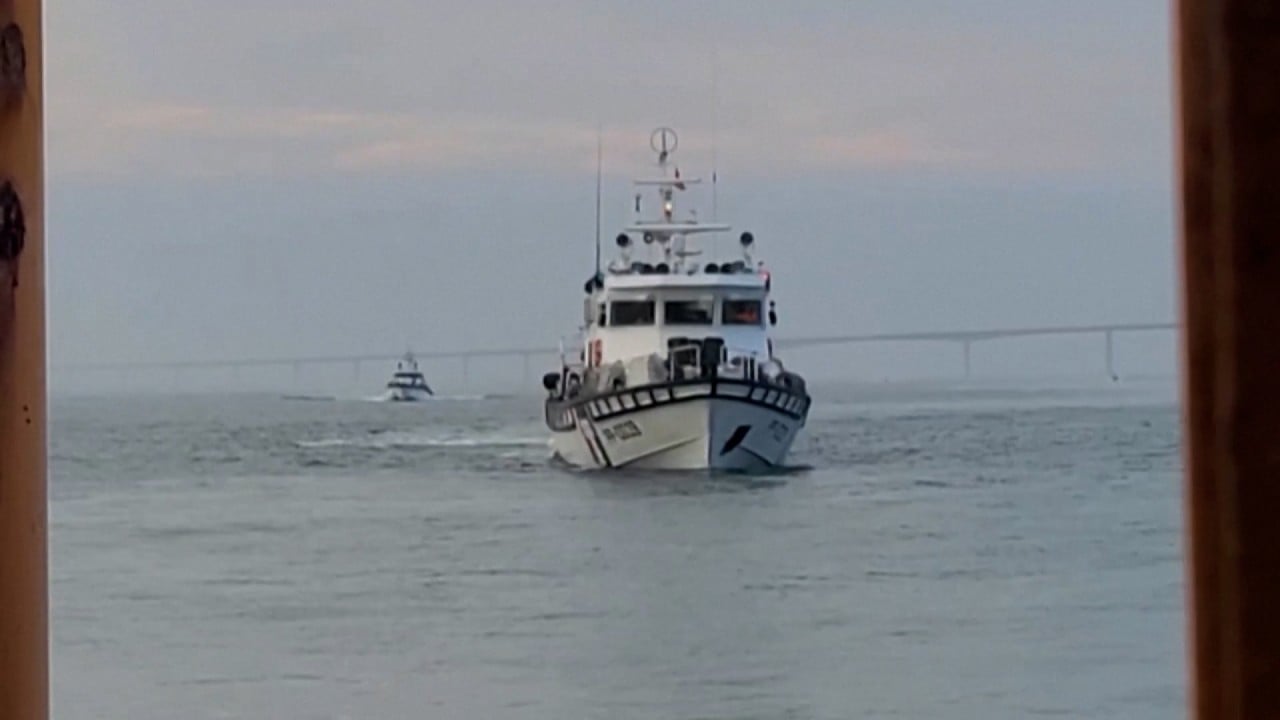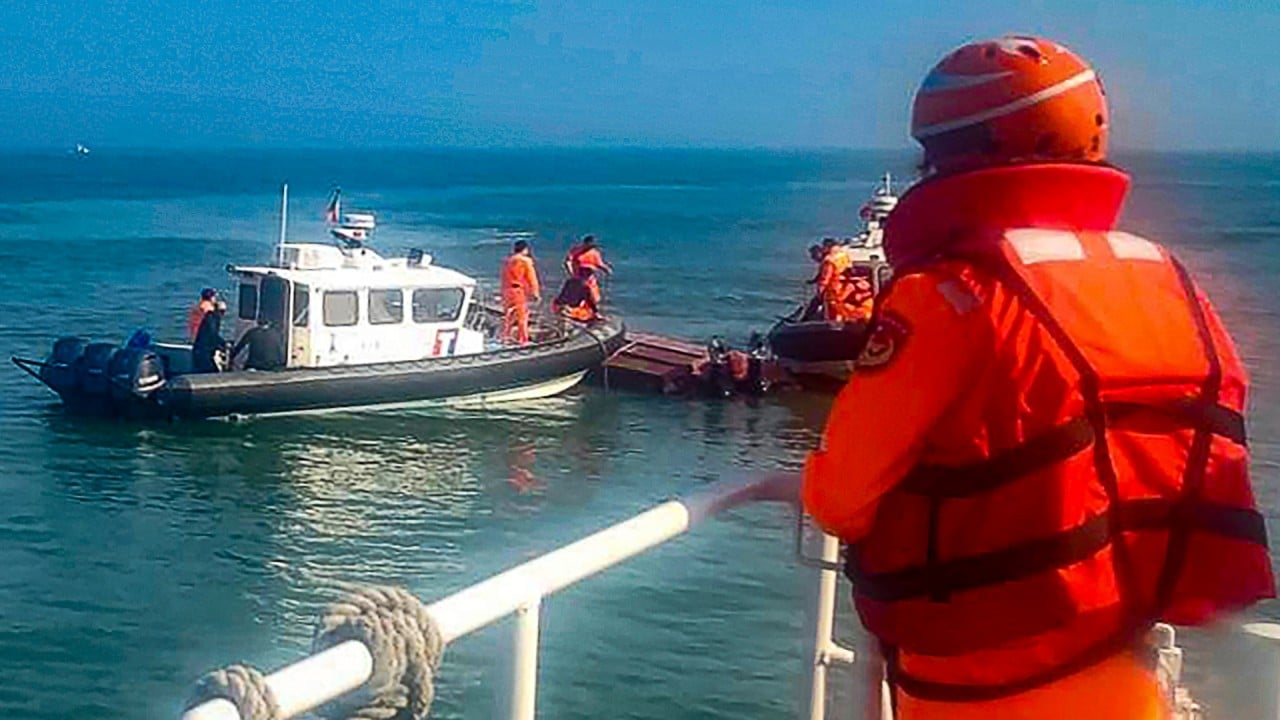
Mainland China’s coastguard ships no threat if they stay clear of land forces, Taiwan military says
- Island’s defence chief Chiu Kuo-cheng made the comments as concerns grow that rising cross-strait tensions could escalate
- Mainland vessels are patrolling waters around Taiwan-controlled defence outpost after two mainland fishermen died in waters off Quemoy
“As long as the [mainland coastguard vessels] do not come close to our land forces, we do not see them as a threat,” Chiu Kuo-cheng told reporters ahead of a legislature meeting in Taipei.
Chiu was addressing concerns about recent dispatches of mainland vessels to patrol waters around the Taiwan-controlled defence outpost of Quemoy, also known as Kinmen.
Beijing sends coastguard ships from Diaoyus to patrol near Quemoy
Chiu said the island’s coastguard had already explained its standard operating procedures on how to deal with such cases. “They would handle the matter accordingly and there is no need for us to make an additional explanation,” he said.
Kuan Bi-ling, head of Taiwan’s Ocean Affairs Council, confirmed on Tuesday that five mainland coastguard vessels had entered the prohibited or restricted waters around Quemoy the previous day. But they stayed there briefly, she said, “after they were warned off” by the island’s coastguard.
The fleet was sent by the coastguard stationed in Fujian province and carried out tasks that included vessel checks, fishing boat protection and issuing warnings, according to a statement by the mainland’s coastguard.
Beijing accused the self-ruled island’s coastguard of using “violent and dangerous methods” that had caused the death of two fishermen. Taiwanese authorities said the mainland Chinese fishing boat was not licensed, illegally entered its “prohibited or restricted waters”, and capsized as it tried to flee from an inspection by Taiwan’s coastguard.
On Tuesday, Chiu called for “smooth handling of the case to keep it from escalating”.
KMT deputy chief Andrew Hsia starts mainland China trip with call for dialogue
Meanwhile, a local-level mainland delegation, including officials and relatives of the dead fishermen, were in Quemoy to seek compensation and an apology from the island’s coastguard to the bereaved families.
No agreements had been reached since the two sides began talks began on February 20, according to Taiwanese media.
Beijing – which views Taiwan as part of its territory, to be reunited by force if necessary – suspended official talks and exchanges with the island in 2016 when Tsai Ing-wen, of the independence-leaning DPP, was elected president and refused to accept the one-China principle.
Most countries, including the United States – Taiwan’s informal ally and largest arms supplier – do not recognise the island as an independent state, but Washington is opposed to any unilateral change of the status quo by force.



